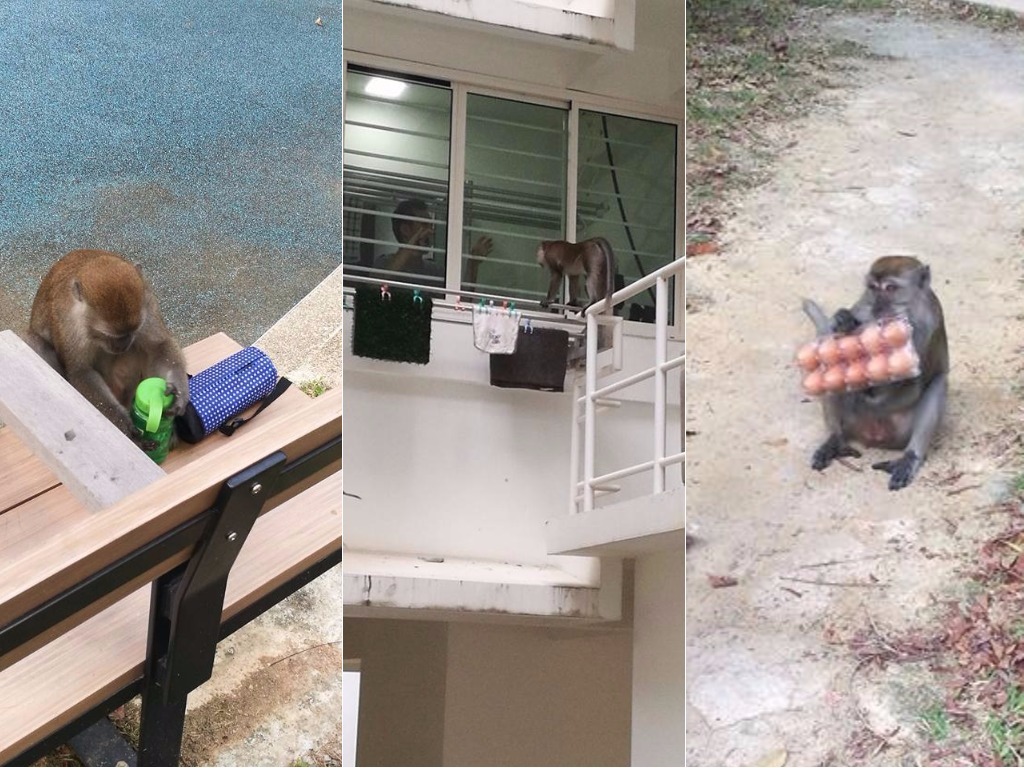[Update on 5 September from AVA:
AVA’s priority in managing the wild animal population is to ensure public health and safety is not compromised. AVA will assess all feedback and determine the necessary actions. For animals that do not pose significant public health or safety concerns, we will advise feedback providers on ways to mitigate the issues. This may include plugging up access points for wildlife or removing sources of food within properties.
For animals that pose significant public health or safety concerns, such as when animals enter premises and destroy property, injure residents or are potential carriers of disease, AVA will work with the relevant stakeholders to explore removal or relocation options where possible.
Monkeys may carry zoonotic diseases that are harmful to public health. Aggressive monkeys are also a risk to public safety. Since 1 September 2017, AVA has received a few pieces of feedback from the public on monkey-related issues at Punggol Waterway. We have been working with the Pasir Ris - Punggol Town Council to monitor and conduct surveillance of the area. ]
Looks like Segar residents in Bukit Panjang are not the only ones troubled with monkey woes.
Just a few months after various agencies grappled with the lone wild macaque at Segar area, here's another one — this time, in Punggol.
Some residents at Punggol Waterway Sunbeam, an HDB estate, had a troubling long weekend with a not-so-friendly visitor to the neighbourhood as one Joseph Tan, shared his experience on Sep. 2:
Tan recounted his "super close encounter" with a lone long-tailed macaque which snatched bottles, food and drinks from passers-by, also allegedly showing aggression to children:
"Yesterday, I started off with shock and surprise to have monkey at my estate. I was joking around got funny "Monkey business" happening.
Not till only when I witness how this monkey snatch people bottle, food, drinks and near attack to some children (without the kids or adults provoking or playing with the monkey), and how this monkey can climb so fast upwards almost enter resident's house.
Today, same timing around 5pm, it returns again. This time, climb higher, move faster and even scratch a child's leg. I even ensure the boy's safety and make sure accompany him to lift and ask him go home."
Not a stranger to the estate
This fellow appears to already be human-acclimatised and no longer afraid of people, evidenced by its brazen strolls along balconies, climbing to high levels of the blocks and sitting on opened windows:
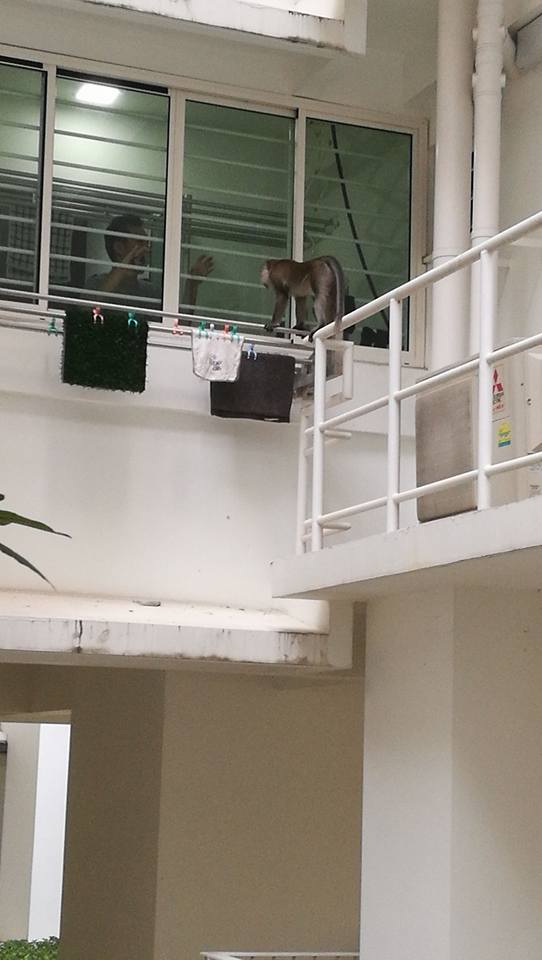
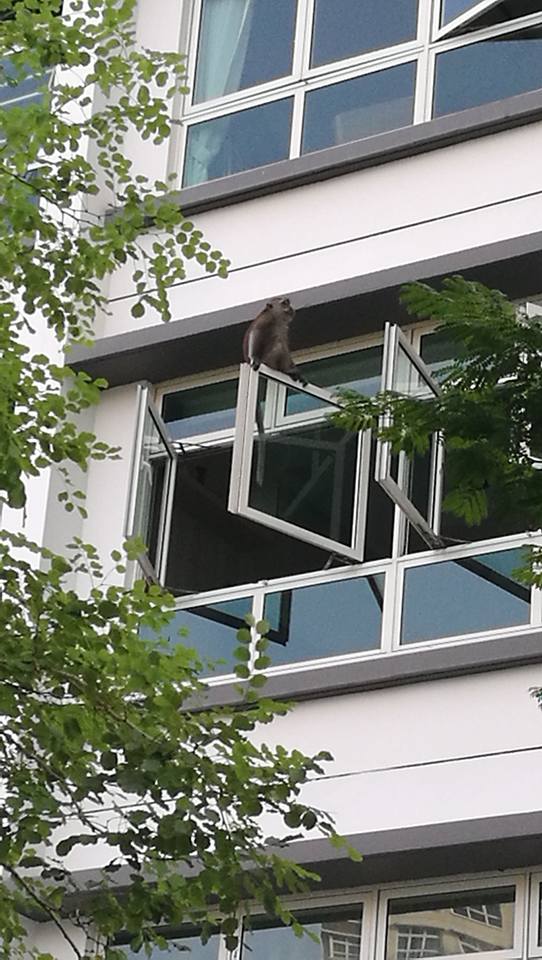 Photo from Joseph Tan Facebook
Photo from Joseph Tan Facebook
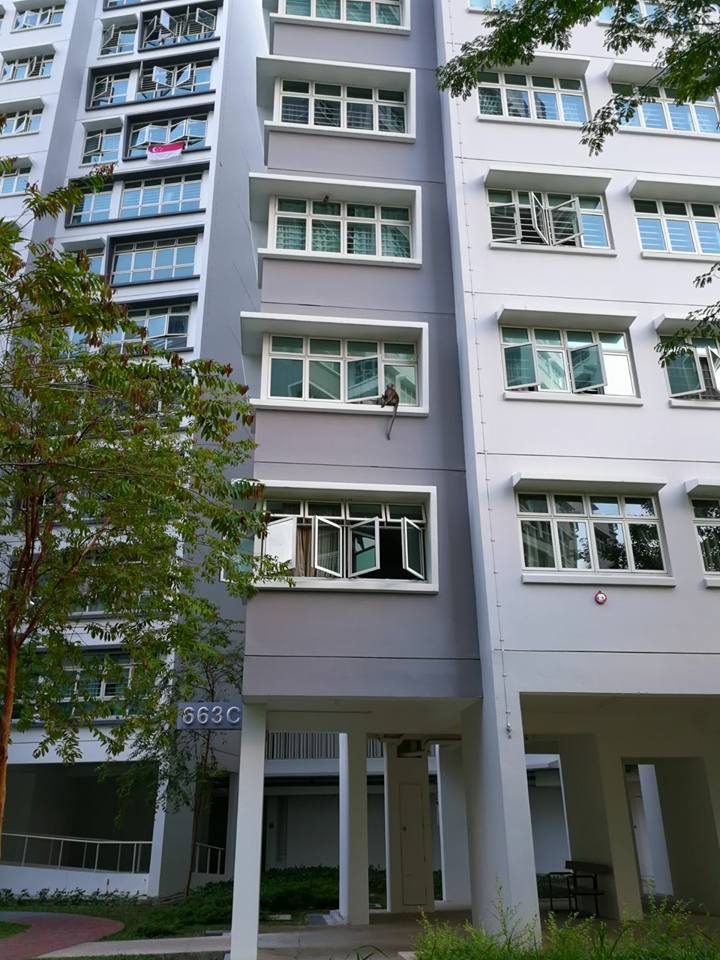 Photo from Joseph Tan Facebook
Photo from Joseph Tan Facebook
It appeared to recognise items such as water bottles and plastic bags and cups as sources of food too:
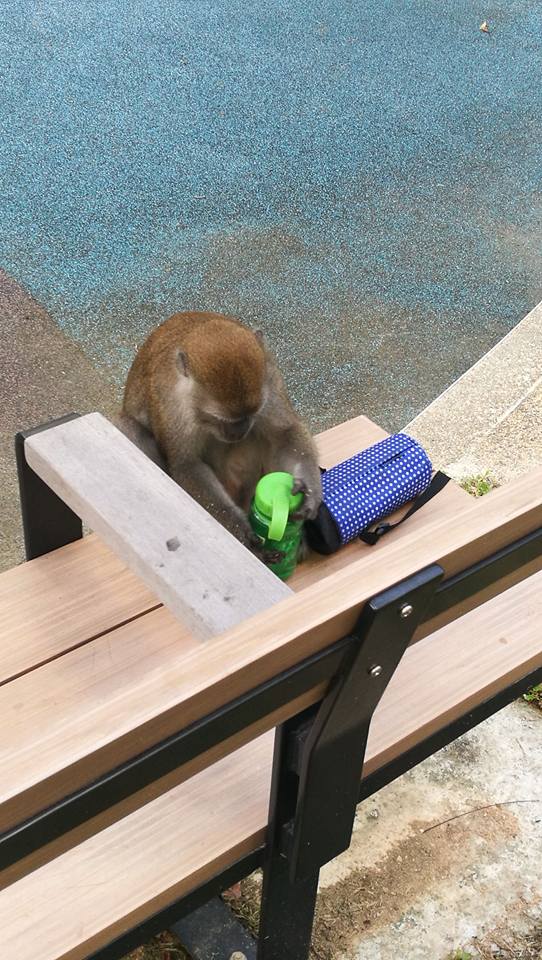 Photo from Joseph Tan Facebook
Photo from Joseph Tan Facebook
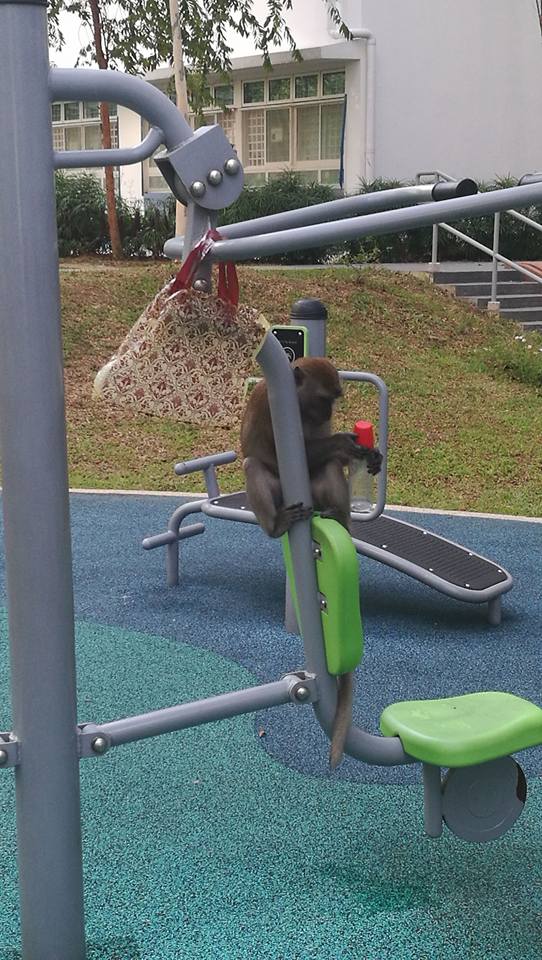 Photo from Joseph Tan Facebook
Photo from Joseph Tan Facebook
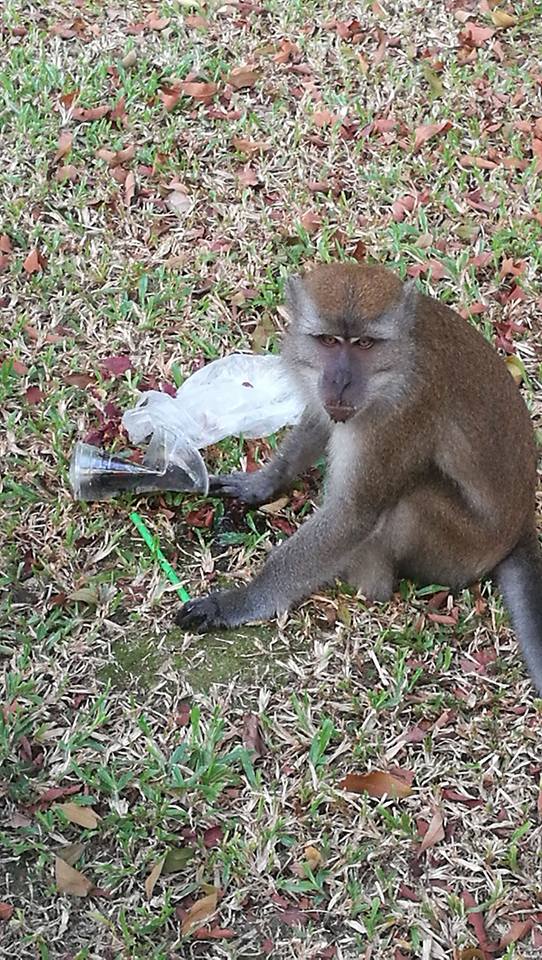 Photo from Joseph Tan Facebook
Photo from Joseph Tan Facebook
Residents' Committee members, said Tan, have already been informing residents to close their windows and stay away from the macaque.
He also said AVA officers went down to the area but the macaque successfully eluded them.
Monkey woes in other residential areas nearby
Some commenters said it's possible the same macaque was terrorising residents at The Terrace, an executive condominium also located at Punggol Waterway:
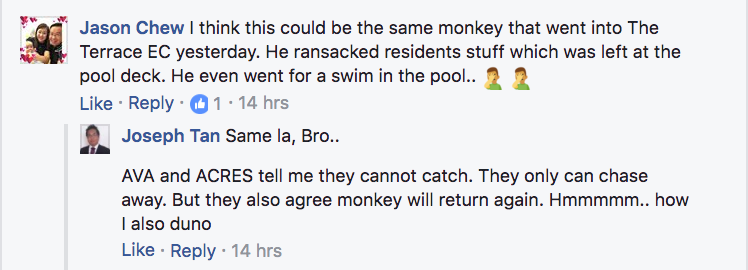 Screenshot from Joseph Tan Facebook post
Screenshot from Joseph Tan Facebook post
 Screenshot from Joseph Tan Facebook post
Screenshot from Joseph Tan Facebook post
[related_story]
Why is this macaque so bold?
Drawing lessons from the human-monkey conflict at Segar Road, the behaviour of this macaque at Punggol is definitely unnatural.
The macaque's behaviour is likely to have been severely altered as a result of long periods of being fed human food, by humans, as well as human harassment.
As wild animals, macaques are perfectly able to feed themselves from plants and forest fruits, and typically shy away from human interaction.
According to the National Parks Board (NParks):
When the monkeys get used to being fed, they reduce their natural inclination to forage in the forest.
Having been conditioned to recognise plastic bags and other containers as food sources, they may instinctively grab these items when they see them.
Advice for Punggol residents and visitors
Avoiding feeding or interacting with monkeys (eg. having direct eye contact and showing teeth) is the rule of thumb in general.
Here are more useful tips you should follow before the authorities safely remove and rehabilitate the macaque, taking a leaf from NParks advisories:
1) Monkey-proof your home
(especially the late afternoon, between 5 and 6:20pm, according to Tan's "magical timing" estimates)
- Install window mesh/grilles on your windows and doors.
- Close all windows and doors, including bathroom windows, when monkeys are spotted in the vicinity or when no one is at home.
2) Keep food out of sight
- Food can be stored in ovens/microwaves/cabinets, or covered in opaque containers.
- Keep prayer offerings within the house.
- Use recyclable cloth bags instead of plastic bags when walking home with groceries.
And here's what to do if you encounter a macaque:
At home:
- Stop whatever you are doing immediately.
- Remain calm and quiet. Do not make sudden movements and do not maintain direct eye contact with the monkeys.
- Look for an exit for the monkeys.
- Without cornering the monkeys, keep hitting the ground with a stick OR direct a strong jet of water at the monkeys to lead them towards the exit.
- Alternatively, move to a safe place and wait for the monkeys to leave.
- Do not try to hit the monkeys.
- If you have a child with you, put him/her on your shoulders. This will increase your perceived size, which could deter the monkeys from approaching you and your child.
In the open
If monkeys approach you:
- Stop whatever you are doing immediately.
- Remain calm and quiet. Do not make sudden movements and do not maintain direct eye contact with the monkeys.
- Look away and back off slowly. Do not turn away from the monkeys and run.
- If you are holding an object which is attracting the monkeys, conceal or discard it.
- Do not try to hit the monkeys.
- If you have a child with you, put him/her on your shoulders. This will increase your perceived size, which could deter the monkeys from approaching you and your child.
- Keep away from the area until the monkeys have left.
All photos and video from Joseph Tan's Facebook post
If you like what you read, follow us on Facebook, Instagram, Twitter and Telegram to get the latest updates.
